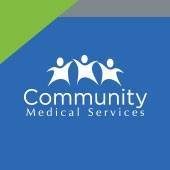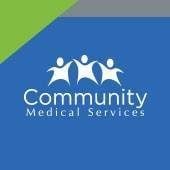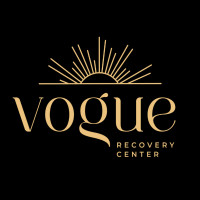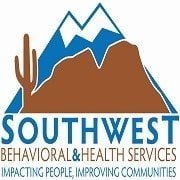Crossroads
Drug Rehab Center in Phoenix, Arizona
Crossroads is a SAMHSA-accredited treatment center in Phoenix that offers a range of evidence-based treatments for alcoholism and opioid addiction, including detox, inpatient, partial-hospitalization, and outpatient services, and accepts private health insurance.
About This Arizona Facility
Crossroads is an addiction treatment facility located in Phoenix, Arizona. This facility specializes in treating individuals suffering from alcoholism and opioid addiction. With its accreditation from the Substance Abuse and Mental Health Services Administration (SAMHSA) and state license, Crossroads adheres to the highest standards in addiction treatment. As a 40-bed facility, Crossroads provides a supportive and therapeutic environment for individuals seeking recovery. They offer a range of levels of care, including detox, inpatient, partial-hospitalization, outpatient, aftercare support, and intensive outpatient programs. Additionally, Crossroads accepts private health insurance, making their services more accessible to those in need. Affiliated with Crossroads - Arizona, this facility is committed to helping individuals overcome addiction and reclaim their lives.
At Crossroads, individuals struggling with addiction can find a variety of comprehensive services tailored to their needs. Their programs include detoxification, providing a safe and supervised process for individuals to rid their bodies of harmful substances. Inpatient treatment is available for those requiring round-the-clock care and support. For individuals who do not require residential treatment, partial-hospitalization and outpatient programs offer flexible options for ongoing recovery. Crossroads also provides aftercare support to help individuals maintain their sobriety and navigate the challenges of life after treatment. Their intensive outpatient program offers a structured and supportive environment for individuals needing a higher level of care while still being able to attend to daily responsibilities. With a focus on alcoholism and opioid addiction, Crossroads ensures that individuals receive specialized treatments that address their specific needs, promoting lasting recovery and overall well-being.
Genders
Ages
Modality
Additional
Accreditations
State License
SAMHSA
Conditions and Issues Treated
Opioid addiction treatment helps people addicted to opioids in Arizona curb their drug use. The selection of a treatment setting depends on the severity of the addiction. Mild cases are usually treated in outpatient facilities; severe cases need hospitalization or treatment in a residential facility. Doctors use medicines along with counseling and behavioral therapies to treat the addiction. The treatment includes medication, counseling and therapy. It can also include group counseling, individual counseling and family counseling.
Levels of Care Offered at Crossroads
This center offers a variety of custom treatment tailored to individual recovery. Currently available are Aftercare Support, Detox, Inpatient, Intensive Outpatient, Outpatient, Partial-Hospitalization, with additional therapies available as listed below.
Detox is the stage of recovery where the drugs or alcohol are entirely removed from your body. There are two different ways to detox, with medications and without. For many drugs and alcohol, the acute phase of detox can be completed in a number of days.
Inpatient rehab means living at the Phoenix, AZ facility while all aspects of an addiction or co-occurring disorder get addressed. This helps limit the distractions and increase the focus on recovery. Typical inpatient rehab stays are approximately one month long.
Crossroads offers an Intensive Outpatient Program is for those who need intensive care but prefer to spend the majority of their time in the comfort of their own home. The rehabilitation services differ in length and intensity. They are customized to meet the needs of the patient.
Outpatient treatment plans cover diagnosis, detoxification, management, and counseling. They are a popular option for those who have graduated from inpatient facilities. Services in Arizona include medication-assisted treatment (MAT) and individual and group therapy.
A partial hospitalization program (PHP) is a short-term form of intensive rehab, usually for those with acute symptoms that are hard to manage but don’t require 24-hour care. PHPs have structured programming (i.e. individual and/or group therapy), and usually meet 3-5 days a week for around 6 hours (i.e. 9am-3m). Some PHPs are residential (patients sleep on site) and some are not, so patients sleep at home. PHPs can last from 1-6 months, and some offer transportation and meals.
After treatment, addiction treatment can be frightening for newly sober people. Aftercare support provided by Crossroads is designed to give resources and help on a continued basis. It can involve finding housing in and around Arizona, setting up 12-step meeting groups, continued medical monitoring, and counseling.
Therapies & Programs
Couples therapy aims to rebuild the trust between the partners. Partner’s involvement in the process will result in greater chances of treatment success. Couples therapy addresses financial issues, loss of trust, lack of intimacy, and physical abuse.
Family therapy is a set of therapeutic approaches that assumes that the entire family is a system. It utilizes the strengths and resources of the family to help the patient refrain from resorting to substance abuse. The impact of substance abuse is not just on the patient but on the entire family. Family therapy ensures that the patient gets adequate support from the family members after the treatment making the recovery process sustainable
- Family therapy guides all the members of the family to help the patient.
- It helps to repair relationships and improve communication between family members.
- It helps to keep the patient engaged and motivated throughout the treatment.
Group therapy is an important tool in recovery. Finding a peer group in Phoenix, AZ and others who relate to your situation is a fundamental tool for recovery at Crossroads. Addiction tends to lead to isolation and feelings of uniqueness. The accountability and friendship that is found in group therapy can be more effective than any single other treatment approach. This is generally introduced early in recovery and is recommended as a lifetime treatment habit.
Trauma therapy is a way of addressing trauma while in a safe situation in order to heal. This may involve Crossroads managing individual or group counseling or both. Other forms of therapy have been proven to assist in healing past traumas.
Negative feelings are common in substance abuse disorders. If not recognized, they can cause co-occurring disorders. CBT involves strategies that help to change the thinking and behavioral pattern. It can be administered as a monotherapy as well as a part of combination therapy.
Rational Emotive Behavioral Therapy (REBT) is a variation of Cognitive Behavioral Therapy (CBT) that helps people understand how maladaptive, negative, and habitual thoughts and feelings lead to bad life choices. REBT is based on the idea that people operate under many irrational but habitual patterns of thought that fuel harmful practices.
Rehabilitation is not just limited to bringing an individual out of addiction and achieving sobriety. It is considered complete only when an individual starts leading a normal and balanced life. Life skill therapy focuses on the various skills that help an individual to lead a normal life. Patients often do not take care of themselves, struggle professionally, and withdraw from social interaction due to addiction’s physical and emotional disturbances.
Life skills therapy helps people in Arizona improve various personal, professional, and social skills such as cooking healthy meals, maintaining proper hygiene, budgeting, decision-making, time management, regulation of emotions, and effectively resolving interpersonal conflicts.
Payment Options Accepted
For specific insurance or payment methods please contact us.
Is your insurance accepted?
Ask an expert, call (888) 674-0062
Additional Details
Specifics, location, and helpful extra information.
Phoenix, Arizona 85016 Phone Number(602) 263-5242 Meta DetailsUpdated November 25, 2023
Staff Verified
Patient Reviews
There are no reviews yet. Be the first one to write one.
Phoenix, Arizona Addiction Information
Arizona has some of the highest rates of prescription drug abuse in the United States. Methamphetamines, heroin and morphine are among the most commonly abused substances. Prescription pain relievers were prescribed to 348 million people in 2012, enough to medicate every adult in Arizona for 2 full weeks. The number of people with substance use disorders in Arizona has remained relatively constant over the past few years.
In 2012, over 246,000 people were living in Phoenix dependent on or abusing drugs. This amounted to 10.8% of the city's population. In 2016, over 1,000 emergency room visits related to heroin and over 2,500 for cocaine. These numbers are only going up. There are many different rehabilitation facilities in the city and some 12-step meetings and support groups available for help.
Treatment in Nearby Cities
- Mohave Valley, AZ (176.8 mi.)
- Mesa, AZ (13.0 mi.)
- Cave Creek, AZ (24.4 mi.)
- San Luis, AZ (173.6 mi.)
- Wickenburg, AZ (51.9 mi.)
Centers near Crossroads
The facility name, logo and brand are the property and registered trademarks of Crossroads, and are being used for identification and informational purposes only. Use of these names, logos and brands shall not imply endorsement. RehabNow.org is not affiliated with or sponsored by Crossroads.









